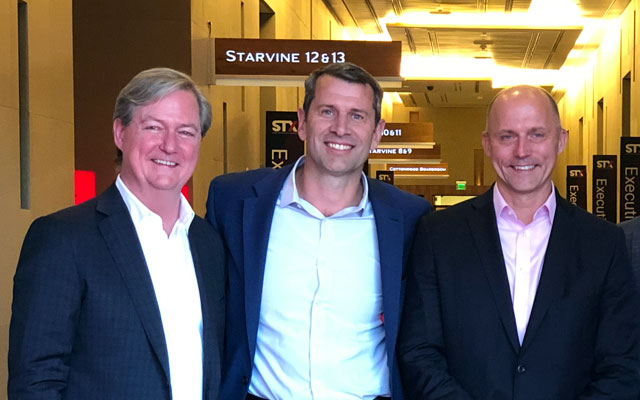Sabre will step up its engagement efforts in Asia-Pacific, including Indonesia, Malaysia, Singapore, Vietnam, Australia and New Zealand starting 2H2019, the technology provider announced on the sidelines of Sabre Technology Exchange in Las Vegas this week.
“We’re working with multiple airlines (in these markets), and as we integrate their content, we intend to release (our products) in their primary markets first,” revealed Kathy Morgan, vice president – NDC, Sabre.

She added that Sabre’s push into Asia-Pacific will be a “gradual test-and-learn” process to figure out the different needs in this region.
The company continues to receive “a lot of interest” in Asia-Pacific, where its market share currently stands at 40 per cent, said Sean Menke, president & CEO of Sabre.
The region holds high potential for greater penetration as a majority of airlines adopt mostly solutions that improve operations and have not explored passenger servicing systems.
Menke added that Sabre is “continuing to look at ways into the China marketplace”, whose GDS and travel network landscape remains “closed”, by working with the US government and other agencies to encourage the Chinese market to open up.
This comes after Sabre launched its first NDC API through United Airlines’ global flight network in April. Soon to follow in 2H2019 are scaled-up additional APIs that support voluntary and involuntary flight changes, refunds and voids.
Feedback from this API launch has reflected that response time is Sabre’s “number one focus right now”, said Morgan. She explained that while most GDS today offer sub-second response time to a search query, an NDC-enabled system would take slightly longer.
The “test-and-learn” approach will help Sabre and its partners have a feel of what their “customer time-out” limit is, she said.
Sabre has also launched a customer advisory board, which comprises its Beyond NDC partners and 60 other industry testers from technology providers to travel agencies.
“The customer advisory board has provided a mechanism for the two sides of the equation – buyers and suppliers – and the technologists that sit in the middle to be able to talk through the real-life implications and concerns around bringing in new technology standards into travel distribution,” shared Morgan.
She explained that the board convenes for meetings where working groups can “take apart and break down where these standards have gaps”, and the results are passed on through IATA’s change request process.
“It takes all of us working together for this to scale, to make sure we get these standards better,” she asserted.
Wade Jones, president of Sabre Travel Network, added that with the expansion into Asia, some future advisory board meetings might be held in Sabre’s headquarters in Singapore.




















